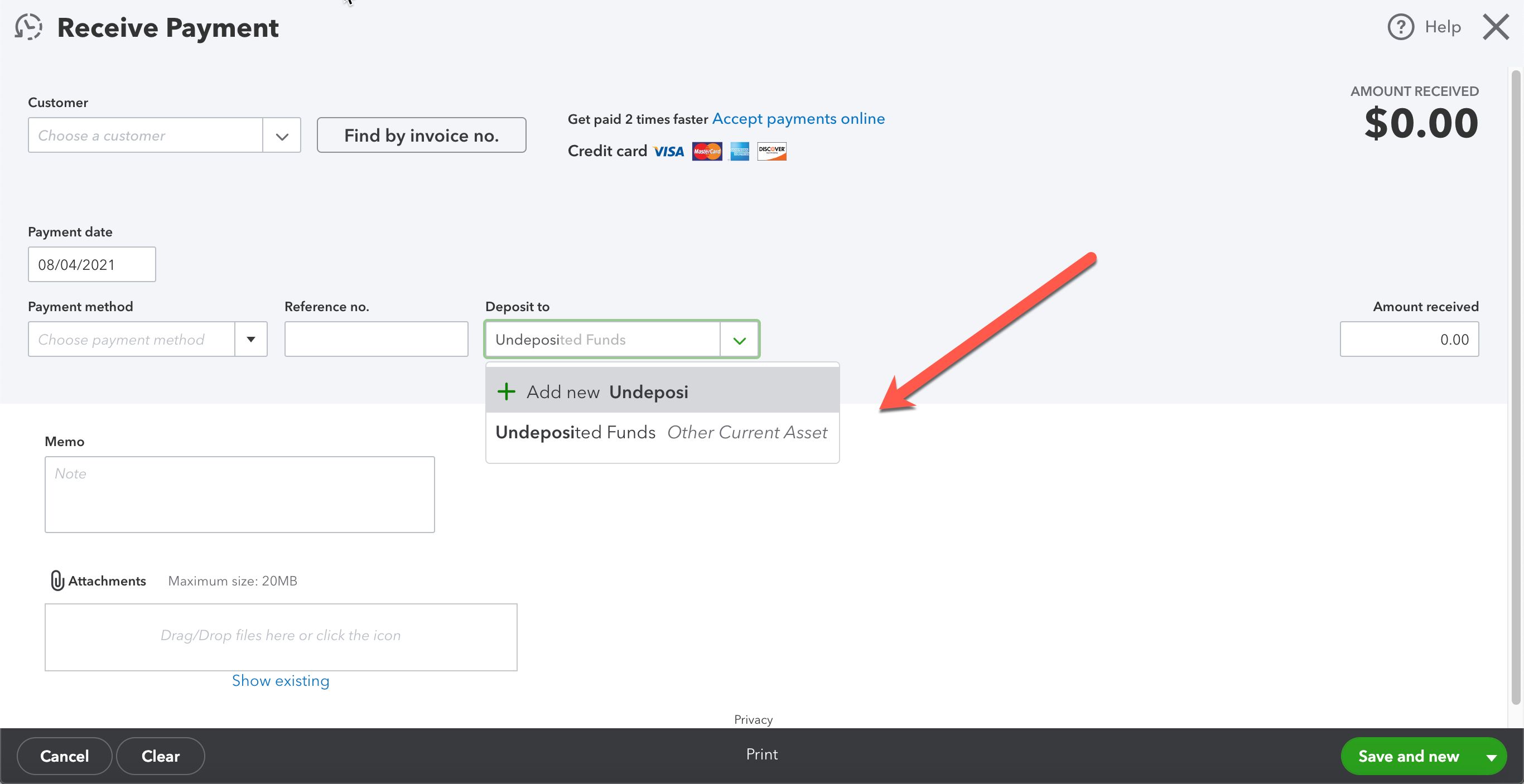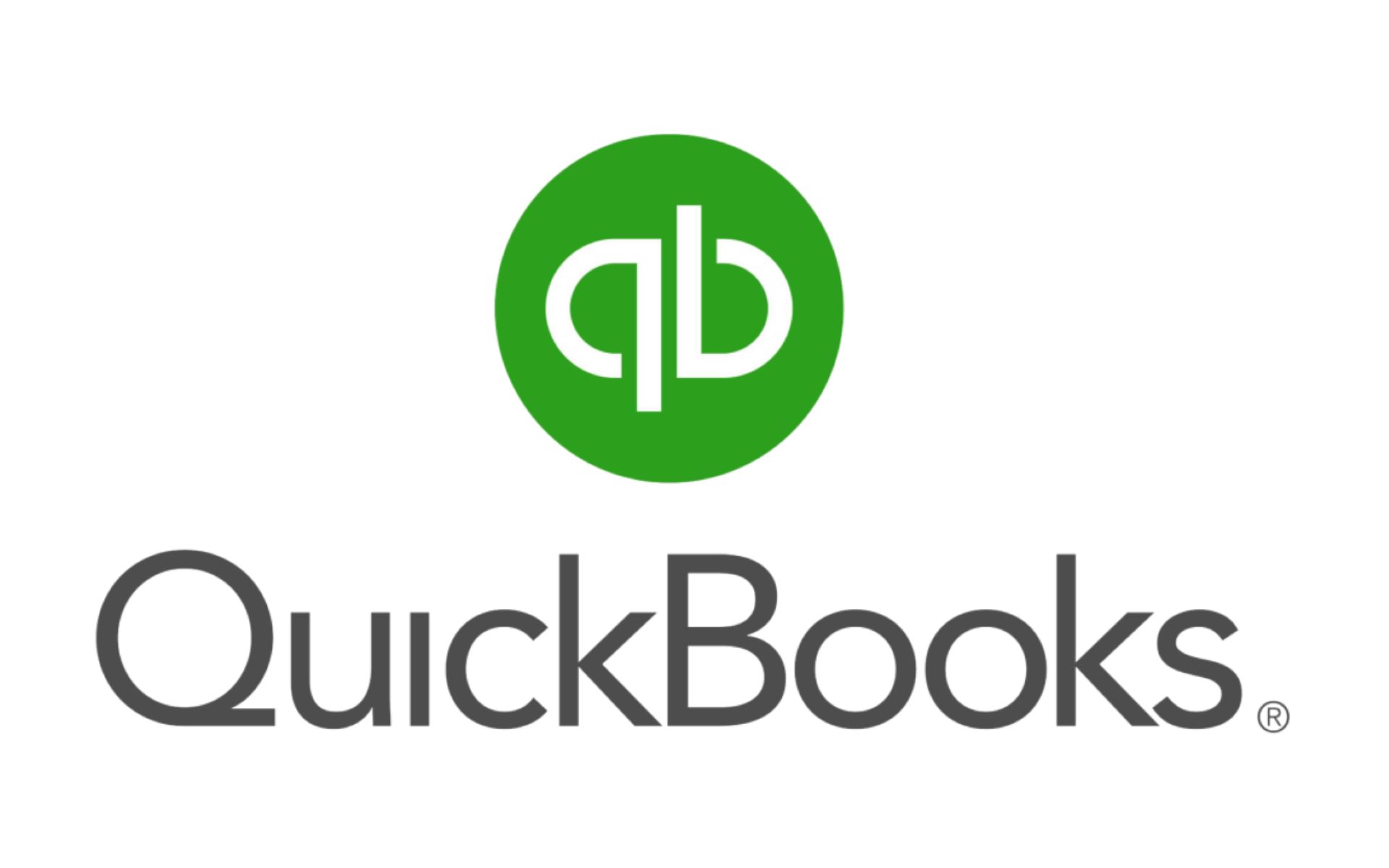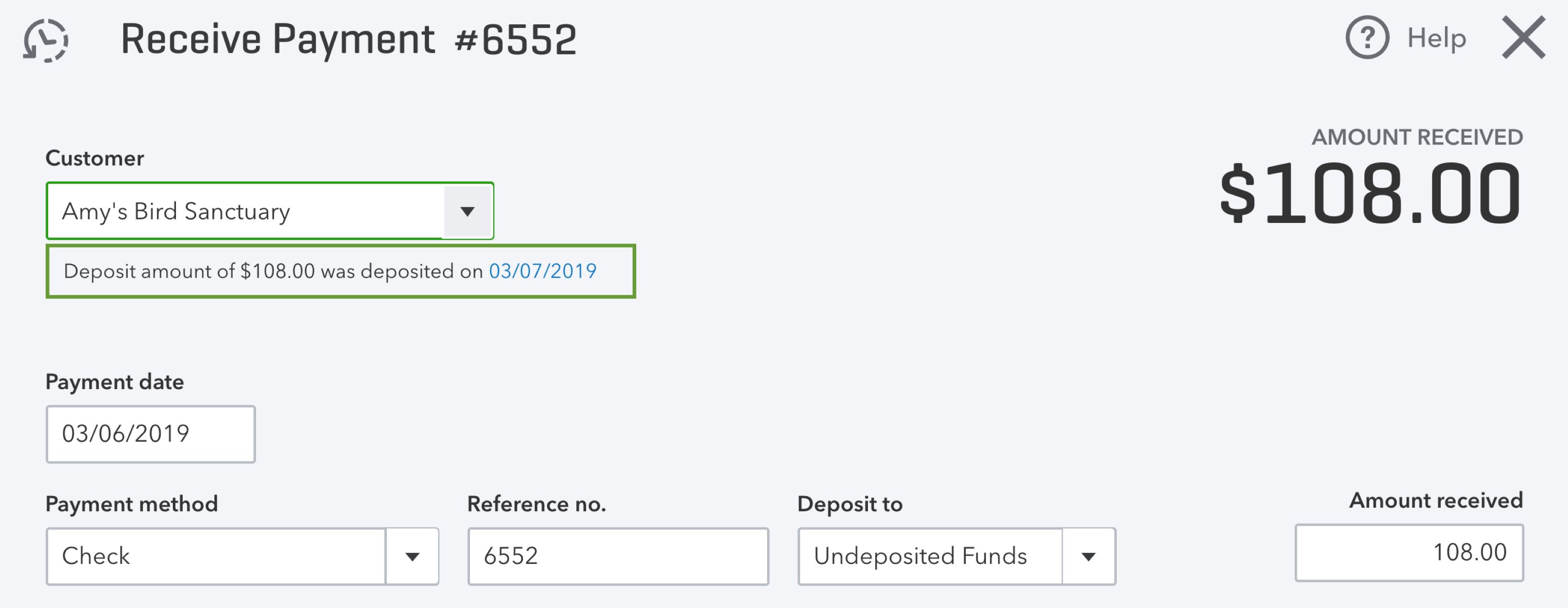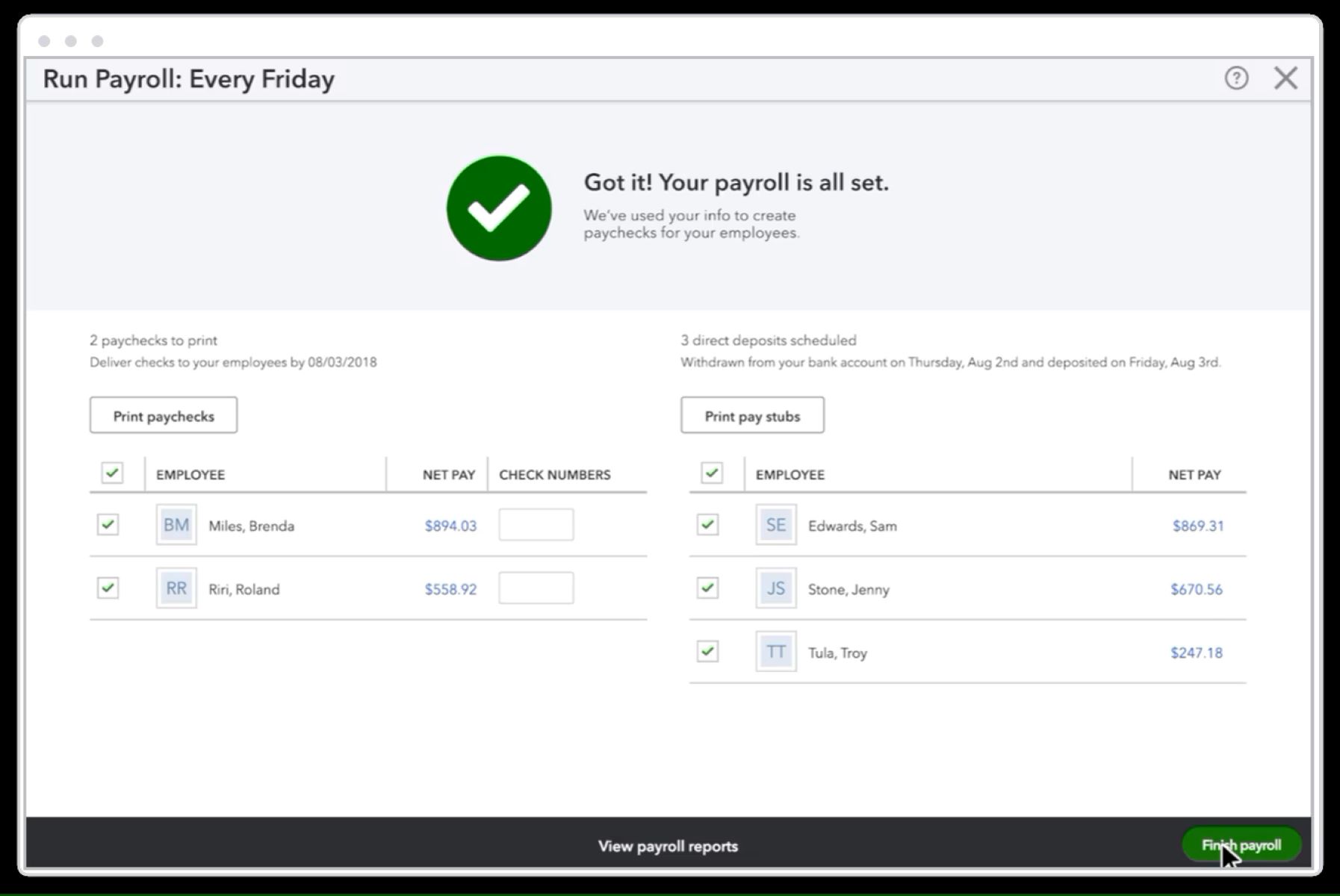Introduction
Welcome to our guide on how long it typically takes for QuickBooks to deposit funds into your account. If you’re a QuickBooks user, you most likely rely on this financial software to handle your business transactions efficiently. Knowing how long it takes for your funds to be deposited is essential for managing your cash flow effectively.
Understanding the factors that influence QuickBooks deposit time can help you better plan your finances and avoid any unexpected delays or issues. In this article, we’ll explore the key factors that affect the speed of deposit processing, including both bank and QuickBooks processing times. We’ll also discuss potential delays that you might encounter along the way and offer valuable tips to help you expedite your deposit process.
Before we dive into the details, it’s important to note that the deposit time can vary depending on various factors – from the bank you’re using to the type of transaction you’re making. It’s always a good idea to check with your specific bank and QuickBooks provider for any additional information or updates that may affect your deposit time.
Now, let’s explore the factors that can impact the deposit time for your QuickBooks transactions and gain a better understanding of the processing timeline.
Factors that Affect QuickBooks Deposit Time
Several factors can influence the time it takes for QuickBooks to deposit funds into your account. Understanding these factors will help you manage your expectations and plan your finances accordingly. Here are the key factors that can affect QuickBooks deposit time:
1. Bank Processing Times
One of the primary factors impacting QuickBooks deposit time is the processing speed of your bank. Different banks have varying internal processes and timelines for handling incoming transactions. While some banks process deposits quickly, others may have longer processing times. It’s important to be aware of your bank’s policies and processing times to anticipate any delays in receiving your funds.
2. QuickBooks Processing Times
The processing time of QuickBooks itself also plays a significant role in how quickly your funds are deposited. QuickBooks needs sufficient time to verify and process the transaction details before initiating the deposit. This processing time can vary depending on the volume of transactions being processed at any given time. Additionally, QuickBooks might have specific cut-off times for transactions submitted after a certain time, which can affect the deposit time.
3. Transaction Type
The type of transaction being processed can influence the deposit time as well. Typically, credit card transactions tend to have a faster deposit time compared to other payment methods, such as ACH transfers or checks. This is because credit card transactions are usually processed electronically and can be settled more quickly. On the other hand, ACH transfers and check payments may require additional processing time, including clearing and verification.
4. Weekends and Holidays
Weekends and holidays can impact the deposit time for QuickBooks transactions. Banks and financial institutions may have limited operational hours during weekends and holidays, which can delay the processing of transactions. If your deposit falls on a weekend or holiday, it’s important to take this into account and expect a potential delay in receiving your funds.
Overall, these factors – bank processing times, QuickBooks processing times, transaction type, and weekends/holidays – can impact the speed at which your funds are deposited into your account through QuickBooks. Being aware of these factors will help you set realistic expectations and make necessary adjustments to your cash flow management.
Bank Processing Times
Bank processing times play a crucial role in determining how long it takes for QuickBooks to deposit funds into your account. While QuickBooks initiates the deposit, the actual processing and crediting of funds is handled by your bank. Here are some key factors that can affect bank processing times:
1. Bank Policies and Processes
Each bank has its own set of policies and internal processes for handling incoming deposits. Some banks may prioritize the processing of deposits and credit funds quickly, while others may have longer processing times. It’s important to understand your bank’s policies and timelines to better anticipate when your funds will be available in your account.
2. Cut-Off Times
Banks often have specific cut-off times for processing transactions. If you initiate a deposit request after the bank’s cut-off time, it may be considered as received on the next banking day. Knowing the cut-off times of your bank is important as it can impact how quickly your funds are credited to your account.
3. ACH Processing Times
If you’re receiving payments through Automated Clearing House (ACH) transfers, the processing time can vary depending on the bank and the ACH network. ACH transfers typically take 1-2 business days to complete, but it can be longer if there are any delays or issues during the process. It’s important to consider the ACH processing times when estimating how long it will take for funds to be deposited.
4. Outgoing and Incoming Transaction Volume
The volume of outgoing and incoming transactions that a bank needs to process can affect the deposit time. If there is a high volume of transactions being processed, it may take longer for your deposit to be credited to your account. This is especially true during peak banking hours or busy periods, such as the end of the month or during holidays.
Understanding the bank processing times is essential for managing your cash flow effectively. By being aware of your bank’s policies, cut-off times, ACH processing times, and transaction volumes, you can estimate how long it will take for QuickBooks to deposit your funds into your account.
QuickBooks Processing Times
Once your deposit is initiated in QuickBooks, the software goes through its own internal processing before the funds are deposited into your account. Understanding the factors that influence QuickBooks processing times will give you a better idea of how long it may take for your funds to be deposited. Here are some key considerations:
1. Verification and Review
QuickBooks needs to verify and review the transaction details before processing the deposit. This includes checking for any potential errors, ensuring the accuracy of the amounts, and confirming the availability of funds. Depending on the complexity of the transaction and the volume of transactions being processed, this verification and review process can take some time.
2. Timing of Deposit Requests
QuickBooks generally processes deposit requests in the order they are received. If you submit your deposit request during peak times or when there is a high volume of transactions, it may take longer for your request to be processed. Additionally, QuickBooks may have specific cut-off times for processing transactions on a given day. Submitting your deposit request before these cut-off times will ensure faster processing.
3. Batch Processing
QuickBooks often processes transactions in batches to optimize efficiency. This means that your deposit may be grouped together with other transactions for simultaneous processing. Batch processing allows QuickBooks to handle a large volume of transactions simultaneously, but it can also result in a slightly longer processing time compared to individual transaction processing.
4. System Updates and Maintenance
QuickBooks periodically undergoes system updates and maintenance to ensure optimal performance. During these update and maintenance periods, the processing times may be slightly longer than usual. It’s important to stay informed about any scheduled maintenance or system updates announced by QuickBooks, as they can impact the processing times of your deposits.
Overall, QuickBooks processing times are influenced by factors such as verification and review processes, timing of deposit requests, batch processing, and system updates. Being aware of these factors will give you a better understanding of how long it may take for QuickBooks to process your deposit and initiate the funds transfer into your account.
Potential Delays and Issues
While QuickBooks strives to provide efficient and timely deposit processing, there are certain factors that can cause delays or issues along the way. Being aware of these potential challenges will help you better manage your expectations and take proactive measures to address them. Here are some common delays and issues that you may encounter:
1. Incorrect or Incomplete Information
If the information provided in your deposit request is incorrect or incomplete, it can lead to processing delays. QuickBooks needs accurate and complete details to process the deposit smoothly. Double-checking all the transaction information, such as account numbers, amounts, and customer details, can help minimize the chances of errors or delays.
2. Payment Rejections or Holds
Sometimes, payments may be rejected by the bank or put on hold for various reasons. It could be due to insufficient funds, suspicious activity, or other banking restrictions. When a payment is rejected or put on hold, QuickBooks cannot process the deposit until the issue is resolved. It’s important to actively monitor your account and address any payment rejections or holds promptly to avoid delays in receiving your funds.
3. Technical Glitches or System Outages
Like any software, QuickBooks can experience technical glitches or system outages from time to time. These unexpected events can disrupt the deposit processing and cause delays. QuickBooks usually resolves such issues as quickly as possible, but it’s important to be prepared for any unforeseen technical challenges and have a backup plan, if necessary.
4.Cryptocurrency Transactions
If you are dealing with cryptocurrency transactions, the processing time may differ significantly. Cryptocurrency transactions involve additional steps and verification processes that can take longer compared to traditional payment methods. Factors such as network congestion and transaction confirmation times can impact the overall deposit time for cryptocurrency transactions within QuickBooks.
While these potential delays and issues can occur, it’s important to remember that QuickBooks continuously works to streamline their processes and minimize any interruptions. By staying proactive and addressing any issues promptly, you can reduce the impact of these potential delays and ensure a smoother deposit process.
Tips for Faster Deposits
While the deposit time for QuickBooks transactions is influenced by various factors, there are several tips and best practices you can follow to expedite the process and receive your funds faster. Here are some tips to help you achieve faster deposits:
1. Optimize Your Deposit Timing
Try to initiate your deposit requests within the cut-off times specified by QuickBooks. Deposits submitted before these cut-off times are more likely to be processed on the same day, resulting in faster fund availability. By being mindful of the timing, you can maximize the efficiency of your deposit processing.
2. Ensure Accurate and Complete Information
Double-checking all the transaction details, such as account numbers, amounts, and customer information, before submitting your deposit request can help minimize errors or processing delays. Providing accurate and complete information will ensure that QuickBooks can process your deposit smoothly and without unnecessary delays.
3. Consider Using Credit Card Payments
If possible, encourage your customers to make payments through credit cards. Credit card transactions are often processed more quickly than other payment methods, such as ACH transfers or checks. By offering credit card payment options, you can expedite the deposit process and receive your funds faster.
4. Stay Informed
Stay updated on any announcements or notifications from QuickBooks regarding system updates, maintenance, or known issues. By staying informed, you can plan your deposit requests accordingly and avoid any potential delays that may arise due to system updates or maintenance periods.
5. Address Rejected or Held Payments Promptly
If a payment gets rejected or held by the bank, take immediate action to resolve the issue. Contact the customer or the bank to rectify any problems and ensure that the payment is processed successfully. Addressing any rejection or hold-related issues promptly will help minimize delays in receiving your funds.
6. Utilize Quick Funding Options
QuickBooks offers quick funding options that allow you to receive your funds faster. These options may involve an additional fee, but they can expedite the deposit time significantly. Explore the quick funding options available within QuickBooks and consider using them if faster access to funds is crucial for your business.
By following these tips and best practices, you can enhance the speed of your QuickBooks deposits and ensure that your funds are available for use in a timely manner. Implementing these strategies will help you streamline your cash flow management and improve your overall financial efficiency.
Conclusion
Managing your cash flow effectively and knowing how long it takes for QuickBooks to deposit funds into your account is crucial for the smooth operation of your business. Throughout this guide, we have explored the factors that can affect the deposit time, including bank processing times, QuickBooks processing times, potential delays, and issues that may arise.
Understanding these factors and being aware of their impact on the deposit process can help you set realistic expectations and make informed decisions. By optimizing your deposit timing, ensuring accurate information, considering credit card payments, staying informed about system updates, and promptly addressing any issues that may arise, you can expedite the deposit process and receive your funds faster.
It’s important to remember that while quick deposits are desirable, it’s equally crucial to prioritize accuracy and completeness in your transactions. Taking the necessary steps to provide accurate information and address any rejected or held payments promptly will help minimize disruptions and maintain a healthy cash flow.
Furthermore, remember to stay proactive in staying updated with your bank’s policies and any changes in QuickBooks’ processing times. Stay informed about industry updates and best practices to ensure that you are making the most of the available tools and resources to improve your deposit speed.
Overall, by understanding the various factors affecting QuickBooks deposit time and implementing the suggested tips and strategies, you can enhance the efficiency of your deposit process, maintain a healthy cash flow, and focus on growing your business with peace of mind.

























